Even though some people might consider WFH simply moving the mouse every once in a while, others do actually focus on it; and that means no doing the laundry, cooking dinner or watching the kids on the side.
Redditor u/Short-Baseball-477 was expected to do the latter, though. After his wife fired the nanny, she couldn’t choose a replacement, which is why he suggested that either the woman fix the problem or stay home herself.
Looking after the kids typically requires one’s undivided attention, making WFH at the same time close to impossible

Image credits: drazenphoto (not the actual photo)
This redditor refused to watch his while he was working from home




Image credits: puhhha (not the actual photo)


Image credits: Short-Baseball-477
Like most things in life, the WFH model, too, has its advantages and disadvantages
It’s hard to believe that remote work, or work from home (WFH), was rarely the arrangement just a few years ago. Established in workplaces all over the world due to the Covid outbreak, such a work model—once a necessity—became the new norm in quite a few places.
And while some employees couldn’t have been happier about the time they saved not taking the commute, the money they saved not eating lunch outside the office, and the energy they saved choosing their best pajamas instead of assembling something office casual-like, others felt lonesome working on their own and faced an array of other challenges.
A study of the early stages of lockdown (early March to early May, 2020, to be exact) revealed that employed people benefited from the advantages of WFH more than they suffered from the drawbacks, though.
Replies from nearly six thousand workers from 29 European countries gathered for the study also helped outline the main advantages and disadvantages of such an arrangement. The former included work–life balance, improved work efficiency, and greater work control; the latter—home office constraints, work uncertainties, and inadequate tools.
But the situation regarding remote work seemingly differed from country to country. According to Slack’s global survey, by late summer of 2020, 44% of American workers were more willing to work from home rather than an office; in the UK, it was 45% vs 39%. People in some countries preferred it the other way around, with the office being where they’d rather work from—22% for home vs 58% for the office in France and 18% vs 51% respectively in Japan.
Parents can find WFH especially challenging with children in need of their attention around

Image credits: Ketut Subiyanto (not the actual photo)
Nowadays, roughly three years after the pandemic, some places of employment still offer a remote work option and some workers still seemingly prefer it. According to a Pew Research Center survey, 35% of people who have the opportunity to work from home do so all of the time.
The research center also revealed that during the Covid period, parents in particular had to jump through numerous hoops, as schools and child care facilities closed their doors as well. Anyone who’s ever tried working from home with kids around knows that it can be a pretty challenging task indeed.
Based on Pew Research Center’s data, as the pandemic progressed, the challenges employed moms and dads had to face reportedly increased as well. In March of 2020, 37% of them found it difficult to handle child care responsibilities; just roughly a half a year later, as much as 51% did.
The data also found that out of the surveyed parents, roughly 43% had jobs that could be done remotely, while 57% of them had those that could not. The OP and his wife represented different sides of these camps, but—whether from home or not—they were both working, which means they needed to find someone to look after the children while they did.
Working parents often seek help with child care from those around them

Image credits: Andrea Piacquadio (not the actual photo)
Zippia revealed that nearly 60% of working parents—adding up to nearly 6.4 million of them in the US—rely on child care centers for looking after their little ones. It also pointed out that a large number of them live in communities classified as child care deserts, which means finding a child care center is close to impossible.
Whether it’s because of the area being a child care desert or other reasons, some people, including the OP, ask their family members for help with children, which is in no way an uncommon option. There’s even a name for people close to the parents helping them out on the matter, known as Family, Friend and Neighbor (FFN) Care.
According to the Washington State Department of Children, Youth, and Families, such carers include grandparents, aunts and uncles, older siblings, friends, and neighbors, among others. In Washington, as well as the entire US, FFN care is reportedly the most common type of child care for infants and toddlers and for school-age children before and after school.
Hiring a nanny is another option for those looking for help with kids; and there are nearly 170,000 of them currently employed in the US alone. But, as the redditor’s situation shows, it might not be easy to find one that the parent(s) would approve of.
When all options seem to have drawbacks—be it the in-laws constantly hovering around or a nanny with seemingly suspicious intentions—the parents might find themselves in quite a predicament. But in the OP’s case, he believed it wasn’t his responsibility to get him and his wife out of it, as he wasn’t the one who caused it; and fellow redditors in the comments seemed to support him.
People in the comments shared their opinions, they didn’t consider the OP a jerk in this situation
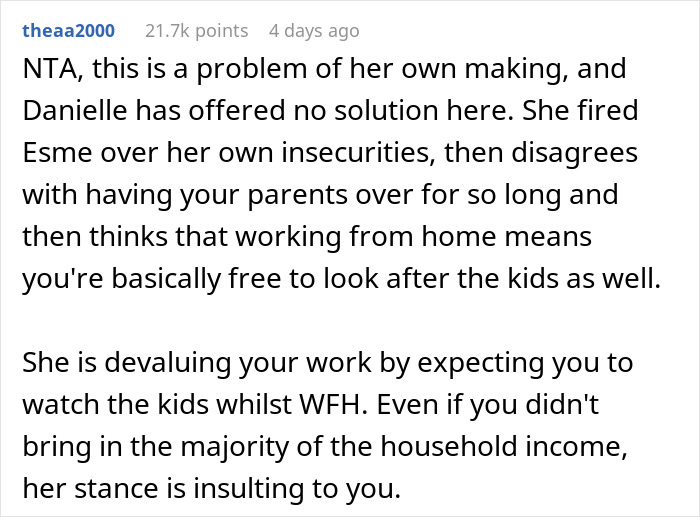
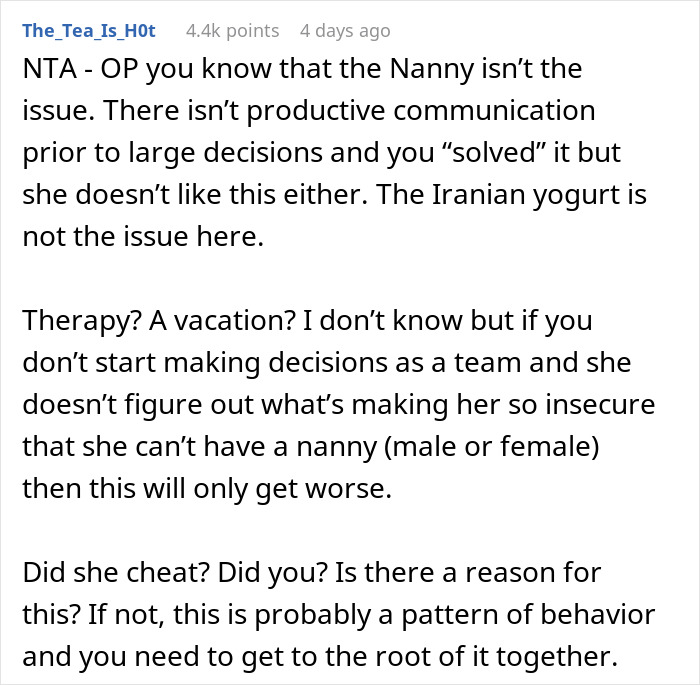

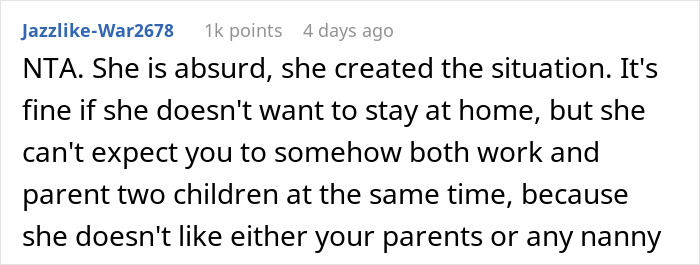

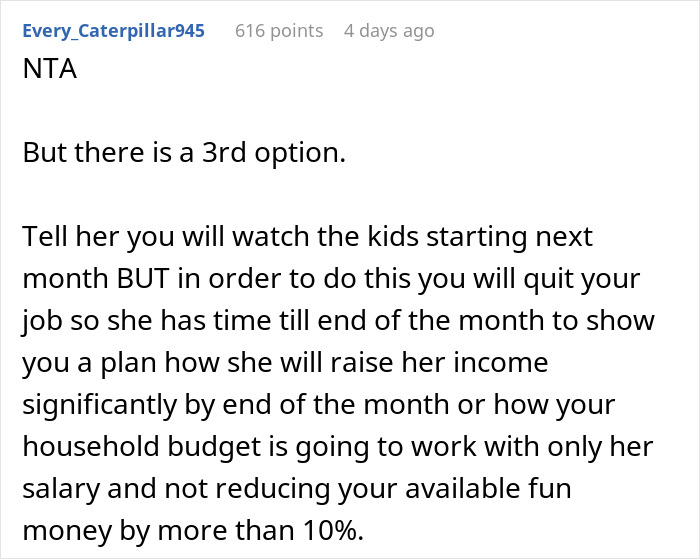

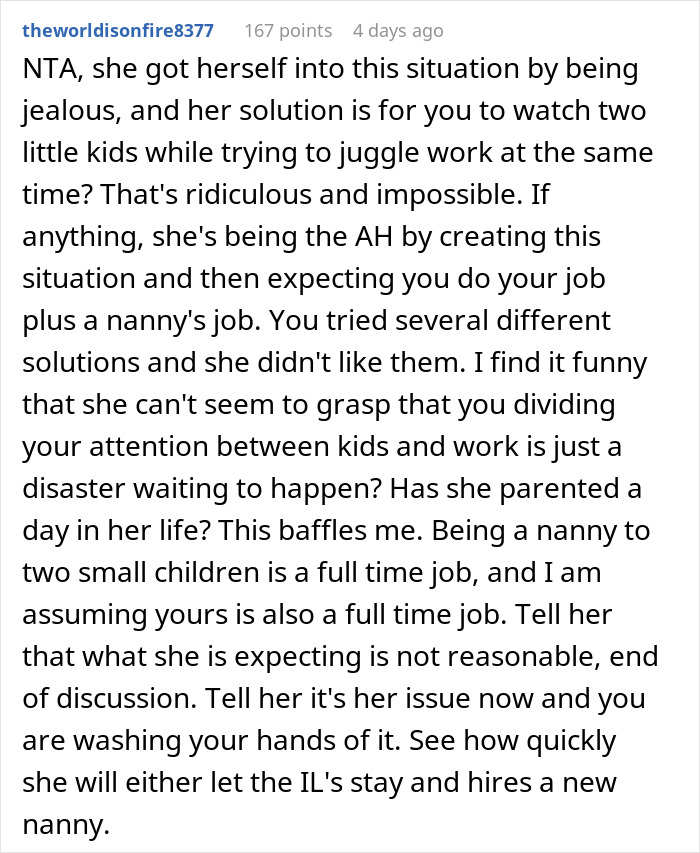
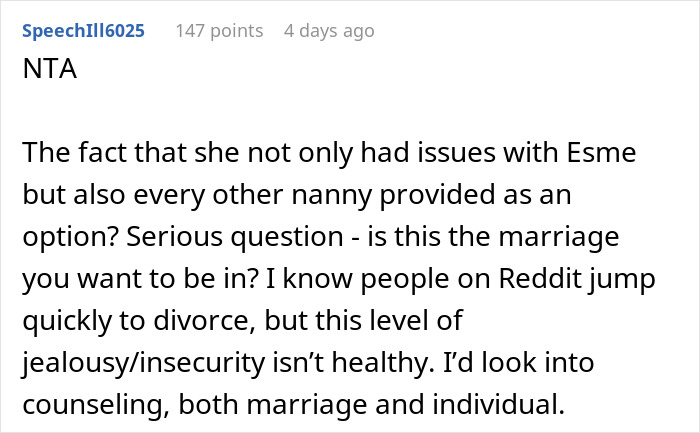




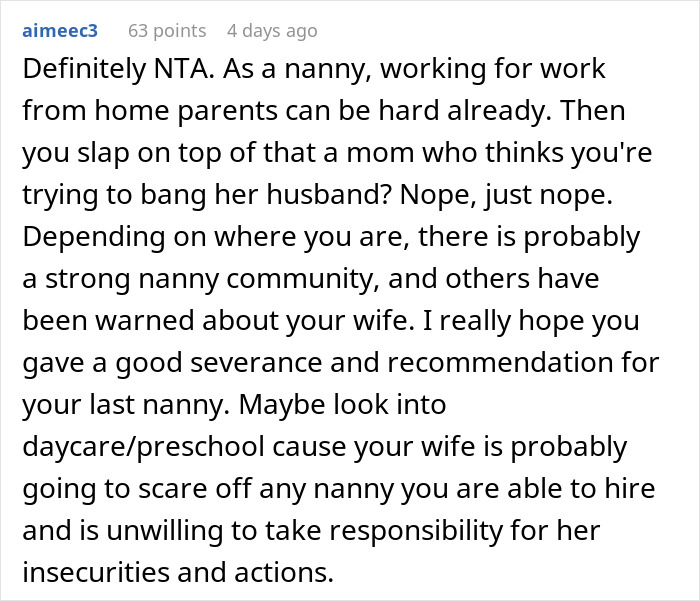

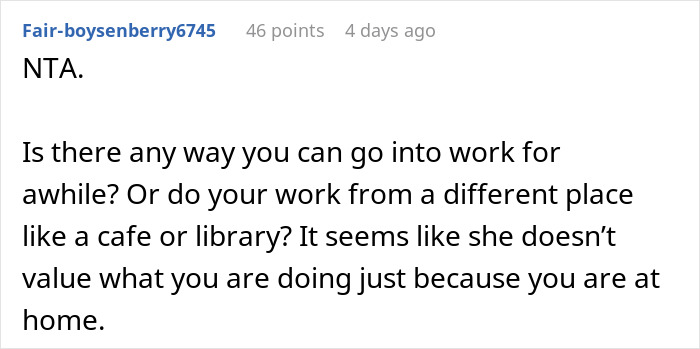

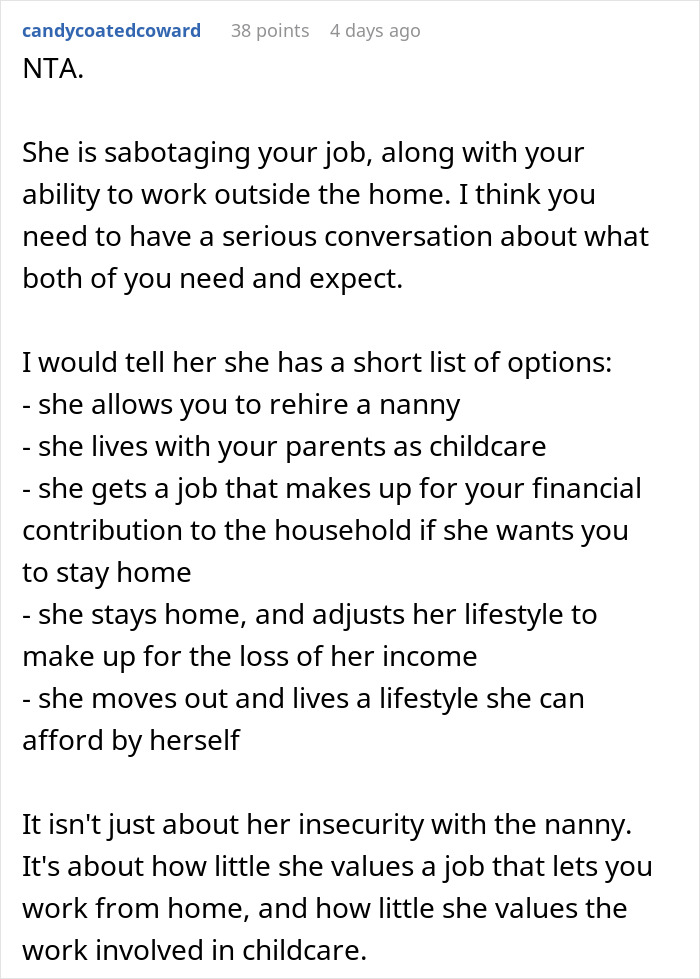
The post Man Demands Wife Look After The Kids After She Fires Perfectly Good Nanny Over Infidelity Threat first appeared on Bored Panda.
from Bored Panda https://ift.tt/JVbSz7N
via IFTTT source site : boredpanda